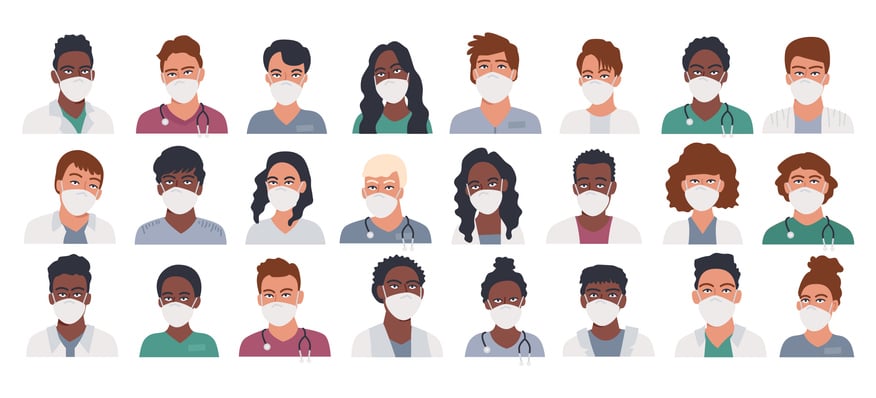 Creating a workplace with a strong Diverse, Equitable and Inclusive culture is not only the right thing, it’s also crucial for your retention and improving patient care.
Creating a workplace with a strong Diverse, Equitable and Inclusive culture is not only the right thing, it’s also crucial for your retention and improving patient care.
A study from Press Ganey shows health systems with strong Diversity, Equity, and Inclusion (DEI) values have less risk of staff potentially leaving the organization.
The study also found:
- Healthcare organizations had twice as many employees at risk of leaving if the workforce perceived diversity and equity weren’t prioritized versus work forces that do.
- The risk of leaving within 3 years is more than 4 times higher for healthcare workers who believe their organization doesn’t value employees from different backgrounds versus workers who do.
- If offered another job, healthcare workers are 4 ½ times more likely to leave an organization if they believe different backgrounds aren’t valued, or if the organization isn’t committed to workforce diversity, versus workers who do.
- Perceptions of diversity & equity are a bigger indicator of intent to stay with an organization among security personnel, nurses and physicians than other ancillary staff.
Having a strong DEI culture allows employees to be comfortable and confident in who they are. This allows them to focus on providing the best patient care possible.
Research shows, 77% of employees and 80% of leaders who are disabled chose not to share their disability in their workplace. For LGBTQ workers, 46% are closeted at their place of work. And across all diverse characteristics, 75% of employees feel the need to mask their differences or downplay them during work.
Employees masking or hiding aspects of themselves during shifts affects their confidence, motivation, feelings of safety and hinders their job performance.
It’s important for healthcare workers to have mentors they can look up to throughout their careers. A lack of diversity can make it difficult for minority healthcare workers to find role models they identify with. This can impact their professional growth and their ability to provide optimal patient care.
A strong DEI culture isn’t something that can be achieved overnight. It requires a leadership who is dedicated to promoting cultural awareness and inclusion. It requires staff who are willing to take the time to learn about and understand each other. It also means being willing to identify and address biases.







